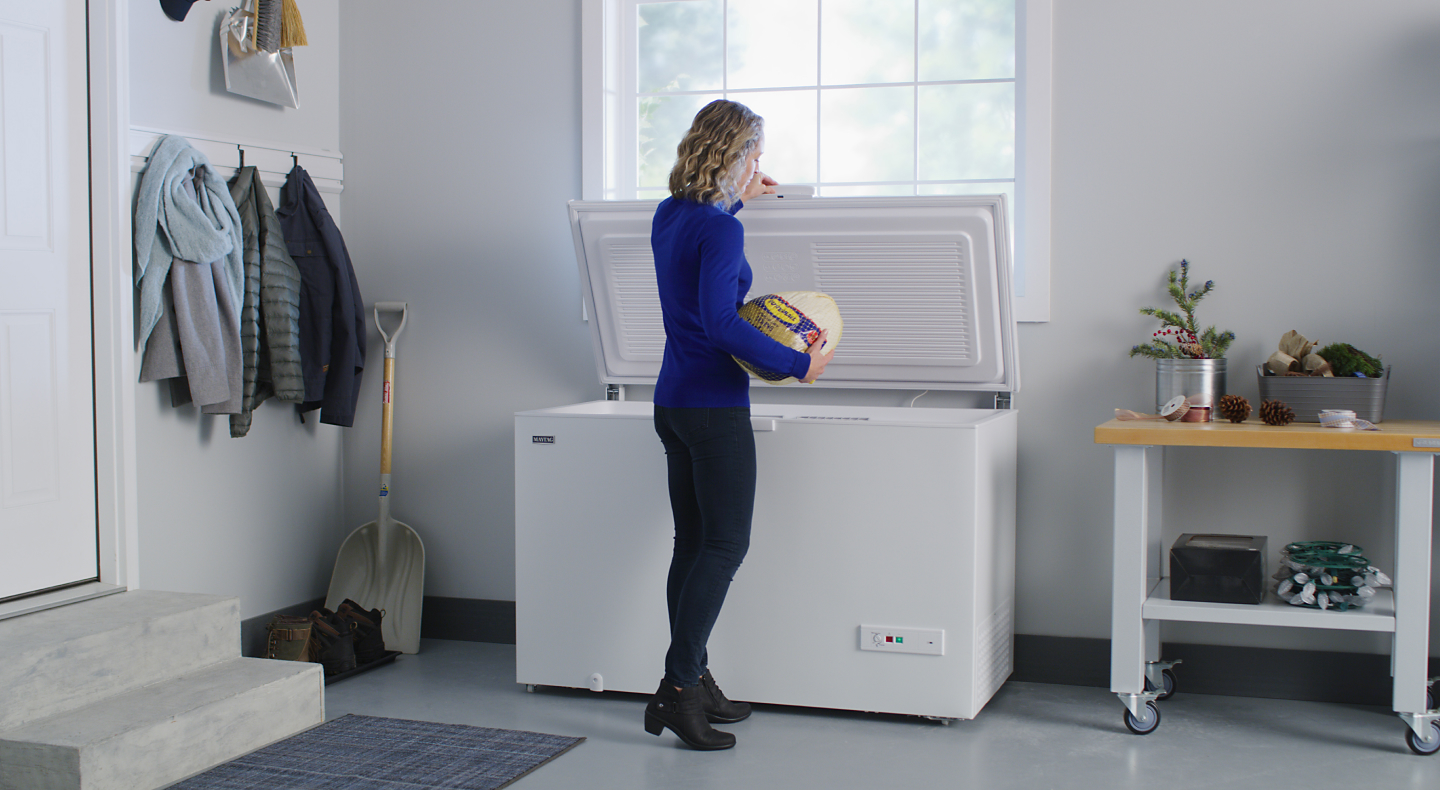If you have a large household to feed or if you don’t have a lot of time to spend on cooking, having extra freezer space can be incredibly appealing. Buying freezer-friendly staples like meat and fish in bulk and freezing them until you’re ready to use them can save you plenty of time and energy, and it’ll also cut your grocery bill by a large margin. More freezer space in your home also gives you the option of freezing leftovers or prepping meals in advance. You can easily set aside a week’s worth of food and save yourself the additional expense of ordering out at the last minute.
Of course, standalone freezers aren’t cheap, and they’ll also demand a lot from your home in terms of space and energy. Before you decide to hit the appliance store or buy chest freezer online, it’s a good idea to consider your food storage needs and living situation carefully. The following five questions can help you determine whether you really need to buy a standalone freezer.
What Do You Need a Freezer For?
Before you look into what size and type of freezer to buy, it’s best to think about what you’ll actually be using all that freezer space for. Are you hoping to store a whole season’s worth of food, or are you simply looking to free up some space in a fridge that’s packed to the brim? Are there more than three adults in your household or do you regularly host large gatherings at home? Identifying your needs will prime you to choose a freezer that suits your lifestyle best.
What Type of Freezer Do You Need?
When shopping around for a standalone freezer, you’ll generally have a choice between two types: upright freezers and chest freezers. Each comes with its own advantages and difficulties, and ultimately, your needs will determine which style is preferable for your particular situation. The best way to determine which freezer is best-suited for your home is to consider where you intend to put it and what you intend to store in it.
Chest freezers are best-suited for homes with floor space to spare, whether they have large kitchens, basements, or garages. The freezer’s roomy interiors are perfect for people that buy a lot of big, bulky items, such as family-sized bags of frozen produce or large cuts of meat. Chest freezers also typically feature just one large compartment, although some may come with an internal divider or hanging shelves. This means you’ll probably have to sift through your freezer for a bit to find things you want, just as you would at the grocery store.
Upright freezers take up less floor space and are therefore a better fit for smaller homes. They’re designed similarly to refrigerators, with one swinging door and multiple storage compartments. Your average upright freezer will usually come with shelves, drawers, and door storage, so they’re ideal if keeping small items neat and organized is a major priority for you.
How Much Space Can You Allot?
Balancing your storage needs with your home’s space constraints is one of the biggest challenges of choosing a standalone freezer. As mentioned previously, you can expect the largest chest freezers to take up a sizeable amount of floor space. Upright freezers, meanwhile, will occupy less of your floor but require a clear wall.
You’ll generally see much more size variation among chest freezers than upright designs. The smallest chest freezers have capacities of around 5 cubic feet and are about the size of large coolers, while the largest-capacity freezers can measure up to 25 cubic feet. Upright freezers, meanwhile, can have capacities of around 12 to 20 cubic feet.
Does Your Home Lose Power Frequently?
If power outages and electrical failures are commonplace in your area, a chest freezer will keep your food cold for longer than an upright freezer. This is because they tend to latch closed more securely and have better insulation than their upright counterparts. A quality chest freezer can keep your food cold for around 48 hours without electricity if you keep the lid shut, so you won’t have to worry about its contents spoiling before your power comes back on.
Can You Afford to Use More Electricity?
Any appliance you plug in will definitely use more energy and, by extension, drive up your electricity bill, but it’s worth noting that freezers can use up significantly more electricity than other large appliances. Studies have found that even small five-cubic-foot chest freezers can consume almost 500 kWh annually, while larger ones can use up as much as 1000 kWh per year. A standalone freezer will add to your household’s monthly energy consumption, so it’s worthwhile to carefully consider whether you actually need one.
At its best, a standalone freezer can be a solid investment that can save you precious time, energy, and peace of mind. Outlining your needs and researching your options thoroughly will help you minimize the difficulties and maximize the benefits of keeping one in your home.


